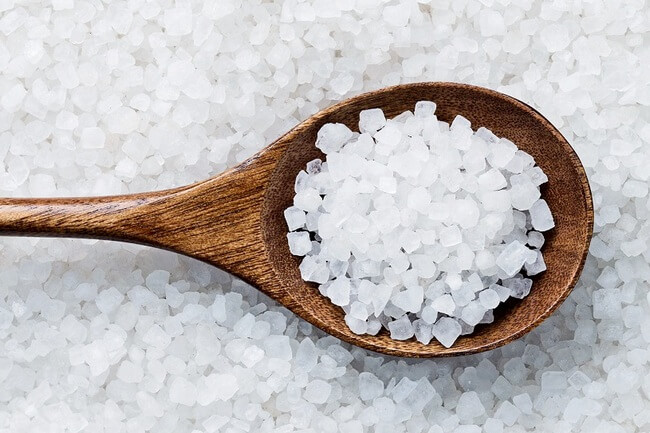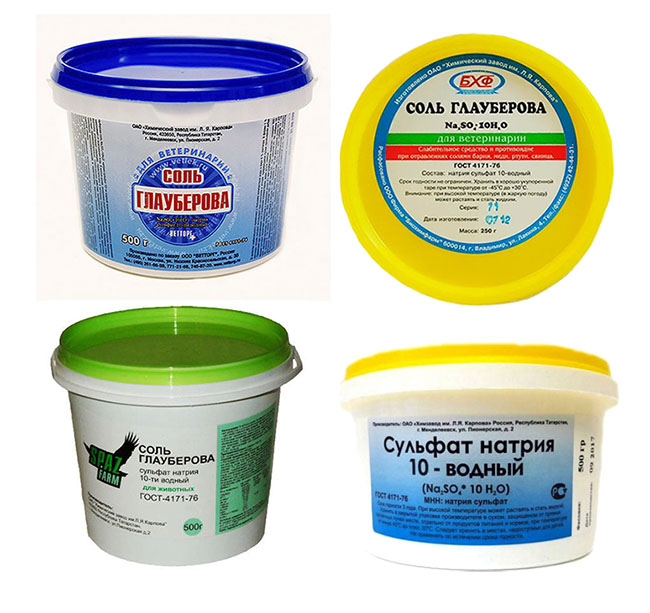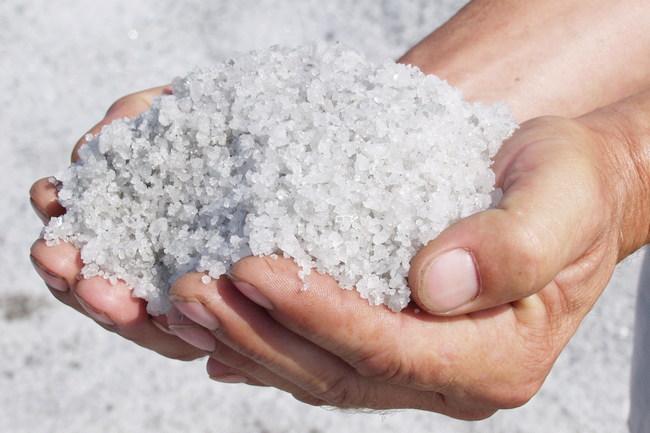Glauber’s Salt for Weight Loss: A Detailed Guide (Benefits, Risks, Recipes)
Pharmacology is a constantly evolving field. Based on new findings, drug manufacturers release new medications, making old ones obsolete. Not long ago, Soviet women seeking an emergency weight loss solution knew they could rely on Glauber’s salt, which was sold for mere pennies at any pharmacy. Today, a pharmacist would simply shrug at such a request, since the only place where one can currently buy this remedy is at a veterinary clinic. After all, it has been successfully replaced by a superior analog in the market — magnesium sulfate. However, there are differences between these laxatives.
Brief Description

Full chemical name: sodium sulfate decahydrate.
Alternative names:
- Sal glauberi;
- Siberian salt;
- mirabilite;
- sodium sulfate;
- guijar.
Chemical formula: Na2SO4 · 10H2O.
Release form: coarse crystalline powder of white color.
Description:
- large, transparent crystals;
- geometric shape of the crystals — prisms;
- taste — bitter-salty;
- odor — absent;
- melts rapidly in the mouth, instantly dissolves in water;
- non-flammable;
- effloresces upon prolonged exposure to air and during heating, losing mass;
- after complete efflorescence, becomes simple sodium sulfate.
Main intended use: laxative.
Method of administration: oral, after being dissolved in water.
Pharmacokinetics: not absorbed in the intestine.
Sources:
- a mineral found in Canada, Georgia, Turkmenistan, and Western Siberia;
- seawater;
- mineral waters from the resorts of Karlovy Vary and Marienbad (Czech Republic);
- deposits and crusts on rock salt and gypsum.
Historical note: first discovered in the winter of 1626 by German alchemist, chemist, pharmacist, and physician Johann Rudolf Glauber as a component of mineral waters.
Origin of the name. Glauber named the substance he discovered mirabilite, which translates from Latin as “miraculous” because this salt cured him of typhus when he was in extremely grave condition.
Main Issue
In medicine and veterinary science, Glauber’s salt is used as an effective and rapid-acting laxative. It is no wonder that it is so popular for weight loss. The issue is that it was recently removed from the register of medicinal products for humans and is now only listed as a remedy for treating animals.
Therefore, many who wish to lose extra weight specifically with mirabilite are concerned with the main question: can humans drink a solution made from the powder sold at veterinary pharmacies and clinics?
Many sources claim that Glauber’s salt, which was prescribed by doctors to their patients as a laxative in the Soviet era, is identical to the one used in veterinary medicine today. On the one hand, it’s true that both are marketed as pure powder, without any impurities. On the other hand, it is important to bear in mind that the requirements for medications intended for humans and animals differ.

Glauber’s salt
No physician would officially prescribe this medication to treat their patient today, even though an abundance of positive reviews can be found regarding weight loss achieved with its help. Therefore, when deciding on this method of weight reduction, one must keep in mind that they will bear full responsibility for the consequences. Are you ready to consume a medication that has the following warnings on its packaging: “For veterinary use only,” “For animals,” “For veterinary application”?
With the same success, one can use a host of other laxatives for weight loss that are functional analogs but are approved by official medicine — like magnesium sulfate. Yes, mirabilite acts faster, but it also aggressively irritates the intestinal walls and has many more side effects.
Moreover, one should never order brightly colored jars with labels that say “Glauber’s salt for humans” or “Glauber’s salt for weight loss,” etc. from dubious online sources. This is fraud.
Effect
Health benefits:
- helps with constipation;
- improves digestion;
- normalizes metabolism;
- stimulates bile production;
- relieves symptoms in cases of poisoning;
- blocks toxic substances that have entered the gastrointestinal tract along with food, preventing their absorption into the bloodstream.
Main indications for the use of Glauber’s salt in Soviet medicine — constipation and severe forms of poisoning.
Effect in weight loss:
- stimulates intestinal peristalsis, having a laxative effect;
- frees the gastrointestinal tract from stagnant fecal matter;
- binds to toxic substances in the stomach and removes them from the body;
- improves lymph flow;
- eliminates excess fluid, possessing diuretic properties (not as strong as the laxative properties);
- cleanses the body.
Mirabilite contributes to weight loss by removing fecal matter, toxins, waste products, and other debris, as well as excess fluid. However, fat deposits do not disappear in the process.
Interesting fact. Paustovsky’s novella “Kara-Bugaz” tells the story of Glauber’s salt mining in Turkmenistan. After its publication, colleagues began calling the writer “the mirabilite of our literature.”
Possible Harm
It is generally recommended to undergo a medical examination and consult with a doctor and a nutritionist before attempting to lose weight with any medications. However, such advice is completely useless with Glauber’s salt: no medical professional will prescribe a veterinary product for a human. Therefore, when deciding on such an extreme method of weight loss, one can only rely on oneself. At the very least, it is worth familiarizing oneself with the contraindications and side effects.
Contraindications:
- individual intolerance;
- avitaminosis;
- anemia;
- dehydration;
- serious gastrointestinal diseases, any intestinal disorders (especially diarrhea);
- cholecystitis;
- exacerbation of any chronic diseases;
- pregnancy, lactation;
- children and the elderly.

Side effects:
- dehydration;
- deficiency of minerals, vitamins, and other beneficial substances, which, due to mirabilite, are not absorbed by the body and are actively excreted as soon as they enter the gastrointestinal tract;
- prolonged, uncontrolled diarrhea;
- vomiting (rare, but possible);
- deterioration of well-being;
- excessive skin pallor;
- bags and dark circles under the eyes;
- weakness, lethargy, drowsiness;
- sudden mood swings, irritability;
- allergic reaction.
Given the rather extensive list of side effects, it is no wonder that Glauber’s salt has been replaced by magnesium sulfate, which has a less aggressive effect on the gastric mucosa.


